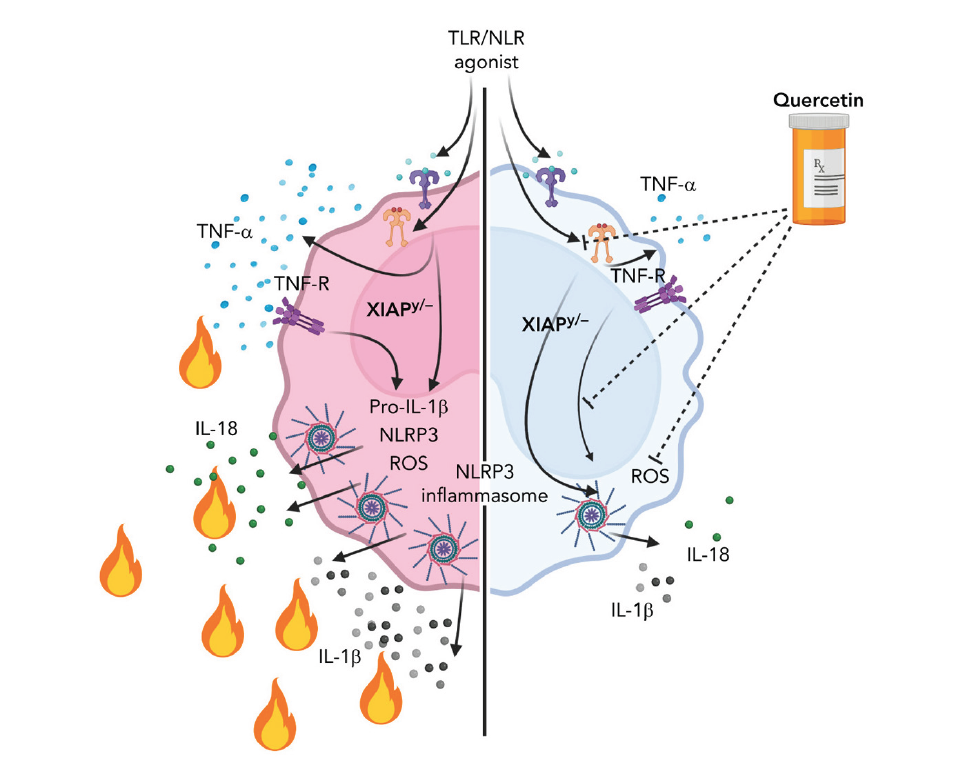Quercetin Reduces XIAP Deficiency-Associated Hyperinflammation
Research By: Samuel Cern Cher Chiang | Erica Owsley | Rebecca Marsh, MD
Post Date: August 18, 2022 | Publish Date: Aug. 18, 2022
Cancer & Blood Diseases Institute
Bone Marrow Transplantation & Immune Deficiency | Top Scientific Achievement


XIAP (X-linked inhibitor of apoptosis) deficiency is a rare inborn error of immunity that causes hyperinflammatory disease. Without effective treatment, children born with XIAP deficiency often require repeated or long-term treatment with immunosuppressive medications or even high-risk allogeneic hematopoietic stem cell transplants.
XIAP deficiency has been linked to several conditions including hemophagocytic lymphohistiocytosis (HLH), inflammatory bowel disease, hypogammaglobulinemia, recurrent fever syndromes, cytopenias, infections, granulomatous interstitial lung disease, hepatitis, arthritis, uveitis, and skin abscesses.
Now, a study led by Samuel Chiang, PhD, Erika Owsley, and Rebecca Marsh, MD, demonstrates, in mice, that the natural flavonoid antioxidant quercetin can stave off hyperinflammation.
When quercetin was added to cell cultures, it prevented IL-1β secretion from XIAP knockout cells and strongly reduced production of IL-18 in both wild-type and XIAP-deficient cells. Similar results were observed in in vivo LPS-challenge experiments. In experiments using human cells, quercetin greatly reduced IL-1β secretion.
“Quercetin is an exceptionally promising agent given that it is a naturally occurring ROS scavenger, and it profoundly inhibits NLRP3 inflammasome priming. It also inhibited TNF-α secretion, which is beneficial in the setting of XIAP deficiency,” Marsh says.
Quercetin is found in many fruits, vegetables and nuts, and is already sold as a dietary supplement. The co-authors state that clinical trials of daily quercetin supplementation should be considered, but the studies must pay close attention to assuring that effective levels of quercetin can be maintained.
“Quercetin may represent a benign alternative to thera- peutics currently used for or being studied for the treatment of XIAP deficiency, or it may offer a simple way to boost additive or synergistic effects in combination with other targeted approaches,” Marsh says.
View more discoveries from 50 research divisions and areas
Return to the 2023 Research Annual Report main features
| Original title: | Quercetin ameliorates XIAP deficiency-associated hyperinflammation |
| Published in: | Blood |
| Publish date: | Aug. 18, 2022 |









